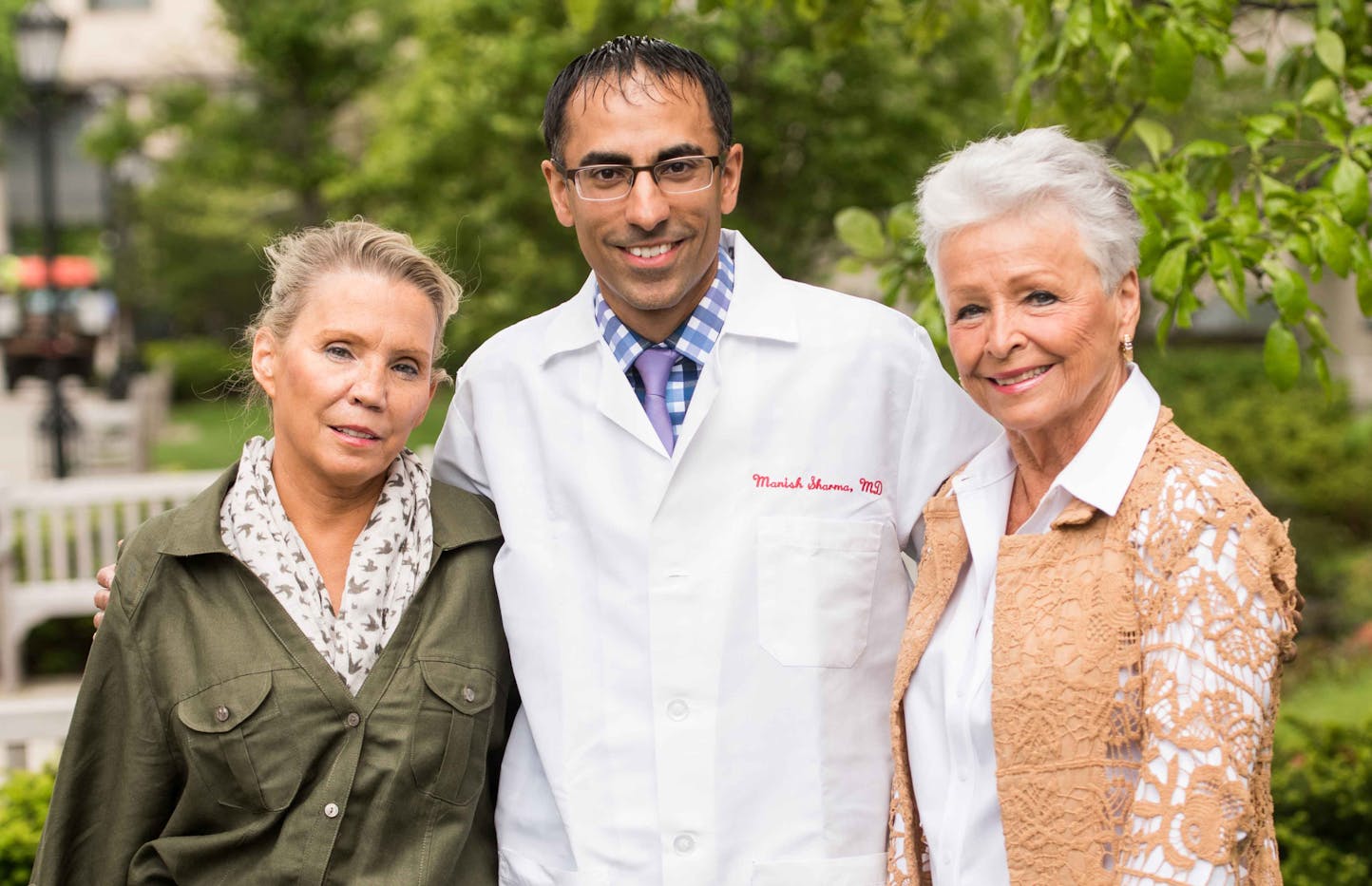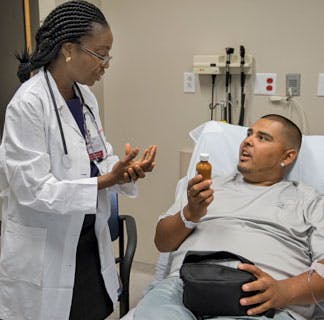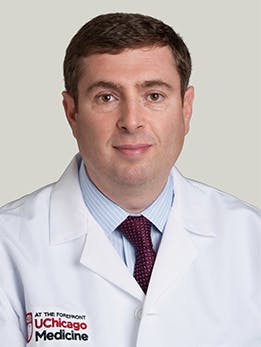Like daughter, like mother: battling cancer

When Indiana resident Margaret Harrigan was diagnosed with stage 4 colorectal cancer at age 73, she knew exactly where she needed to go for treatment: the University of Chicago Medicine.
That's because Harrigan’s daughter Debby Thompson had been a patient at UChicago Medicine in the early 1990s when she battled stage 4 acute lymphoblastic leukemia (ALL) at age 34. ALL is less common and harder to treat in adults than in children.
Thompson was rejected by multiple hospitals before a doctor at UChicago Medicine agreed to take her case. She soon learned her cancer carried the Philadelphia chromosome, a mutation that is relatively uncommon in ALL and is associated with poorer survival outcomes. Fortunately, Thompson’s doctors discovered her brother was a perfect match for a bone marrow transplant, which another hospital had failed to identify.
In February 1991, Thompson received the bone marrow transplant and went from near death to complete remission. It was a long road to recovery, and she continues to be grateful for her transplant care team.
“For all the things that were wrong, everything went really well,” Thompson said. "At UChicago Medicine, from day one they take the fear out of your diagnosis. You become part of a team that cradles you all the way. Whether you're a patient or a caregiver you can reach your doctor, their assistant, your nurses — even the grill guy in the cafe — in minutes. There are truly no words to describe that kind of comfort and security. When my mother got sick, there was no question where I was taking her.”
Returning to UChicago Medicine
Nearly 20 years later, Thompson was back at UChicago Medicine, this time with her mother.
Her mother’s cancer had spread to the liver and lymph nodes. “Sure, I was scared,” Harrigan said. “But, I know you don’t get anywhere without a positive mental attitude. I just said that I wasn’t going to let it get me down.”
Medical oncologist Manish Sharma, MD, had recently developed a clinical trial for metastatic colorectal cancer that studied how patients tolerate higher doses of certain standard chemotherapy treatments. The trial tested a combination of chemotherapies that work by blocking angiogenesis — the growth of new blood vessels — to prevent tumor growth.
Harrigan qualified for the trial and began a regimen of chemotherapy every two weeks. She continued treatment for eight months before she was given a break to allow her body a chance to rest. Typically, Sharma said, the cancer will grow during this break period. Remarkably, Harrigan’s cancer kept responding positively to the treatment.
"The tumors kept shrinking and shrinking and then finally were gone."
“It evolved into what we call a complete response after the chemotherapy was stopped,” Sharma said. “The tumors kept shrinking and shrinking and then finally were gone. We were fully expecting that at some point it would grow and we’d have to put her back on chemotherapy. As it turned out, we didn’t because it disappeared. It’s extremely rare.”
Harrigan’s recovery was so incredible that Sharma and his colleagues decided to make her the subject of a research study, which was published in JCO Precision Oncology.
Researchers discovered that Harrigan's tumor had many more mutations than the average colorectal cancer patient's — what they call a hyper-mutated phenotype. She also had an unusual POLD1 mutation that wasn’t in her "germline," meaning she did not inherit it from her parents but acquired it during life.
“We think the POLD1 mutation and the associated phenotype may have something to do with her great response to the chemotherapy,” said Sharma, adding that future studies will be needed to confirm this hypothesis. He hopes the study will inspire other researchers to further investigate the correlation.
Harrigan recently had surgery to remove a small tumor in her colon that was identified through a virtual colonoscopy. Unrelated to her first cancer, the tumor was successfully surgically removed by Konstantin Umanskiy, MD, along with a portion of Harrigan’s colon due to severe diverticulitis scarring. She has since made a full recovery.
“We know there’s an increased risk of second cancers in people who have had one cancer,” Sharma said. “That’s why we do surveillance with colonoscopies more frequently, and that’s why we caught it early.”
Tackling that bucket list
During treatment for her first cancer, Harrigan made a bucket list to help her stay positive. So far, she’s crossed at least a dozen activities off the list, including visiting the Grand Canyon and Mount Rushmore.
It has been more than six years since Harrigan stopped chemotherapy, and she remains cancer-free.
Harrigan and her daughter, a fun-loving duo who refer to themselves as Lucy and Ethel from the "I Love Lucy" TV sitcom, said their battles with cancer have brought them closer together. Both women have been actively involved in patient advocacy and want to help others by sharing their stories.
“I just live day to day and do as much good as I can do,” said Harrigan, who continues to volunteer weekly at her local hospital as well as to garden, golf and travel.
Thompson has found the experience life-changing. “I have found, and so has my mother, tremendous positives," she said. "If I get to talk to people and one person gets inspiration or looks in the mirror and says, ‘If she can do it, I can do it,’ then it was worth it.”

Participate in a Cancer Clinical Trial
UChicago Medicine cancer experts are actively conducting clinical trials of new screening methods and treatments for cancer, including breakthrough approaches to harnessing the immune system to fight cancer. As a recognized leader in phase I and other early-phase clinical trials, our physician-scientists are creating new cancer treatment methods that later become the standard of care elsewhere.
Find a cancer clinical trial
Konstantin Umanskiy, MD
Dr. Konstantin Umanskiy specializes in the surgical treatment of a wide variety of colon and rectal diseases such as colon and rectal cancer, inflammatory bowel disease (ulcerative colitis and Crohn’s disease), complex anorectal disorders and diverticulitis.
